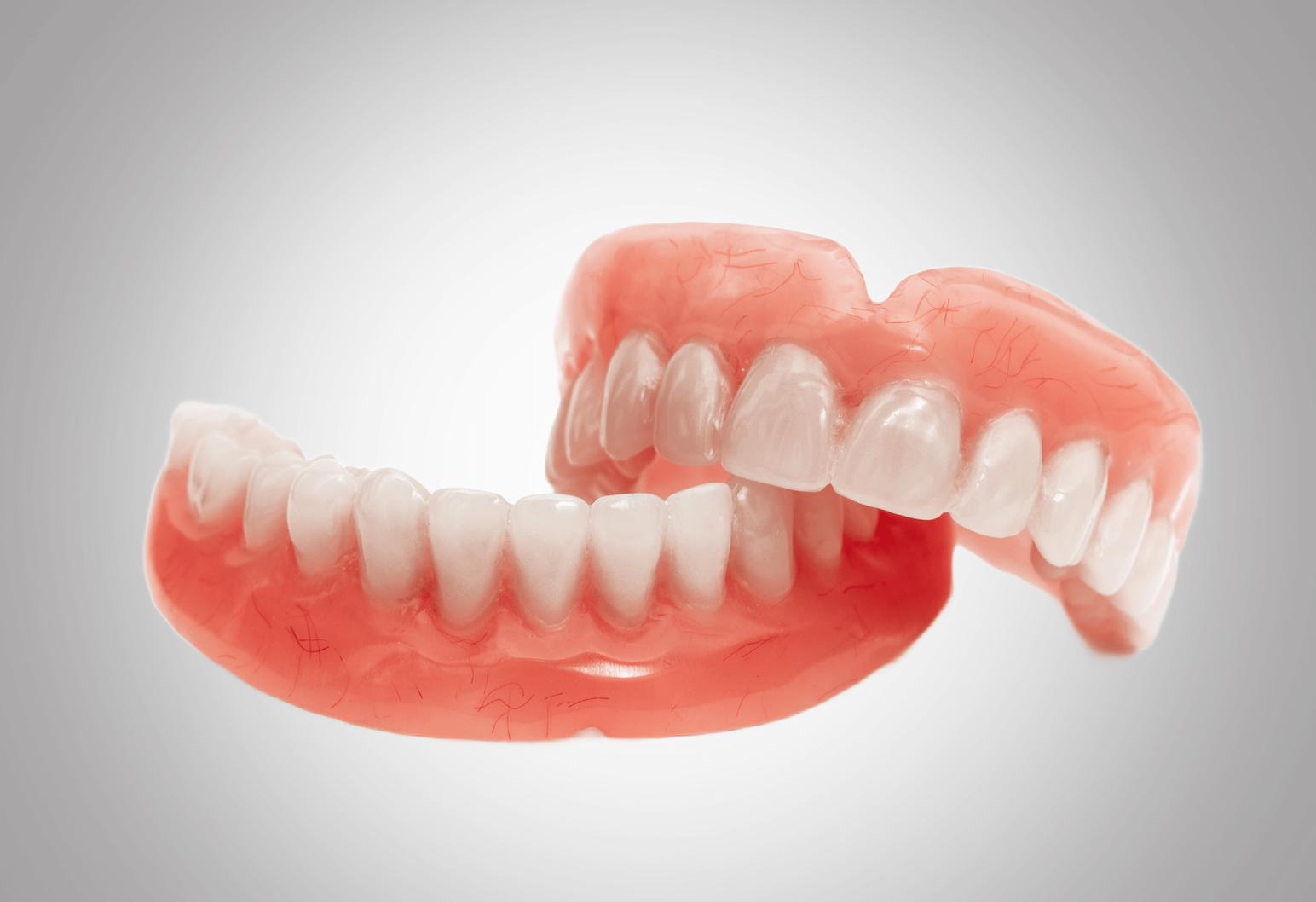If you’re missing teeth and looking for a way to restore your smile, dentures could be the perfect solution. At Jupiter Advanced Dentistry, we’re dedicated to helping you regain your confidence and functionality with high-quality dentures designed for comfort and a natural appearance.
Types of Dentures
Full Dentures
Traditional full dentures are designed for those who have lost all the teeth on one or both arches. Full dentures can be used to replace both upper and lower teeth.
Partial Dentures
Partial dentures are ideal if you are missing only a few teeth, as they fill in gaps while preserving your remaining natural teeth. Like a bridge, partial dentures rest on surrounding teeth to fill in the gaps where one or more teeth are missing. But unlike a bridge, partial dentures are fully removable by the wearer. Partials are an affordable alternatives to other types of dental prosthetics and are custom-made to blend in with your natural teeth. It takes a little time to adapt to new partials, but many people find that they reclaim much of their original function and aesthetics with partial dentures in place.
Implant Supported Dentures
Implant supported dentures are preferred by many dental patients who are missing all of their teeth but want a more stable prosthetic replacement option than traditional dentures provide. Unlike regular dentures, which rest on the gums unsupported, an implant supported denture is anchored in place by titanium rods surgically embedded into the jaw bone. This prevents the dentures from slipping or becoming loose during wear. Many patients find that implant supported dentures in provide greater comfort, easier chewing, and better communication capabilities than are available via traditional dentures.
Caring for Your Dentures
Dentures require gentle care and frequent cleaning. Once you get your new denture or partial, you’ll need to:
- Keep them moist at all times by soaking them in a distilled water or denture solution when not in use. Dentures are typically made from materials like acrylic resin or porcelain, which can become brittle if left to dry out. When dentures lose moisture, they are more prone to cracking or warping, which can affect their fit and comfort.
- Gently brush your dentures daily using a soft-bristled tooth brush
- Be careful not to drop your dentures, as they may break
- Avoid exposing your dentures to hot temperatures that could cause warping
Frequently Asked Questions
How long do traditional dentures last?
With proper care, dentures can last anywhere from 5 to 10 years. Full dentures typically last longer than partial dentures because they replace an entire arch of teeth, which distributes the forces of chewing more evenly. Proper care of the denture and maintaining regular dental check-ups help prolong their lifespan.
Will dentures feel uncomfortable?
While it may take a few weeks to adjust to dentures, most people find them comfortable after an initial period. We use advanced scanning technology to ensure the most precision fit for maximum comfort. We’re here to make any adjustments necessary for a perfect fit.
Can I sleep with my dentures in?
It’s recommended to remove dentures at night to allow your gums to rest and to clean them. Soaking them overnight also helps keep them in good condition.

